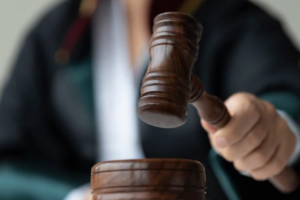 October 21, 2022, Laboratoires Sterop S.A. v. Belaid Louahrani, Laboratoires Sterop LLC, Case No. D2022-2828 (1)
October 21, 2022, Laboratoires Sterop S.A. v. Belaid Louahrani, Laboratoires Sterop LLC, Case No. D2022-2828 (1)
In a decision dated October 21, 2022, the UDRP complaint filed by the Belgian company Laboratoires Sterop S.A. (“Laboratoires Sterop”), targeting the domain name <sterop.net>, was rejected. A singularity of the dispute: it opposes Laboratoires Sterop to an Emirati company with a homograph name, Laboratoires Sterop LLC and its founder.
The complainant is a Belgian pharmaceutical group developing several ranges of pharmaceutical products worldwide: medical devices, dietary supplements, hygiene products, etc. It owns several “STEROP” trademarks, the oldest being registered in the Benelux since 1972 (renewed) and the most recent being registered in the United Arab Emirates since February 18, 2020, for products in class 5.
The disputed domain name has been registered since August 15, 2019, by the respondent company. The latter redirects to a website displaying a welcome message and indicating that the respondent’s activity concerns the sale of pharmaceutical products.
The respondent owns a semi-figurative “STEROP” trademark registered on March 1, 2020, in the United Arab Emirates for products in class 5, a registration date very close to that of the complainant’s prior trademark in this jurisdiction.
First recalling its seniority, the Belgian company then admits to having authorized a company called Laboratoires Sterop FZ-LLC to develop its scientific activities in the United Arab Emirates. However, it disputes having given any authorization to the respondent company, stating in particular that the two companies are distinct. The complainant insists that it has no relationship with the respondent and has already put it on notice, twice, to cease using the term “STEROP”.
To counter the complainant’s allegations, the respondent maintains that the disputed domain name was registered with the unequivocal consent of the Belgian company, resulting from a commercial agreement between the parties.
The respondent also claims that Laboratoires Sterop FZ-LLC partially owns Laboratoires Sterop LLC, and that these two companies operate in distinct territories of the United Arab Emirates. Similarly, the respondent states that one of the directors of the Belgian company is actually a shareholder holding 20% of the shares of Laboratoires Sterop FZ-LLC, and therefore indirectly of Laboratoires Sterop LLC.
Moreover, the respondent explains that it operates as a drug distributor whilst the complainant operates as a drug manufacturer. Thus, their activities being complementary, the respondent would have been one of the complainant’s distributors, and their two trademarks would have coexisted perfectly until the complainant decided to terminate the commercial relationship.
Further arguments are successively appealed by the parties. The complainant argues that, among other things, it did not authorize the filing of the respondent’s trademark beforehand, but noticed it once it was done. It also indicates that the respondent is now marketing products competing with its own and should no longer use the “STEROP” trademark. The complainant also provided several documents to try to substantiate its arguments, however in French while the procedure is in English. Therefore, are not acceptable.
In any case, it is evident that the expert cannot render a decision – on the basis of these elements giving either party truly right or wrong. Indeed, it seems more like a verbal joust between two former partners who are now competitors.
In a rather brief analysis, and without going into all the points raised by the parties, the expert considers that, even if the unequivocal consent of the complainant has not been proven, it is impossible to conclude that the respondent has no legitimate rights or interests in the disputed domain name, in light of the evidence provided. To resolve this point, a thorough analysis would be required, which does not fall within the scope of the UDRP procedure, which strictly covers cybersquatting cases.
It is still common, however, that former partners attempt to resolve their conflicts through this means.
Lastly, even if the complainant should have known that its complaint had no chance of succeeding, the expert does not consider this a case of Reverse Domain Name Hijacking (in French “détournement inversé de nom de domaine”), where the complainant would have filed its complaint solely to harass or harm the respondent.
Therefore, it is important to remember that disputes deserve to be treated with a global vision. If the dispute involves several aspects (conflict over a trademark, domain name, unfair competition, etc.), seeking the appropriate procedure is imperative. If two parties dispute a trademark, which is reflected in a domain name, it is advisable to act simultaneously on both, through a judicial procedure, or at least to obtain a decision on the trademark before turning to the UDRP administrative procedure to try to recover the domain name.
Reference
(1) https://www.wipo.int/amc/en/domains/decisions/pdf/2022/d2022-2828.pdf
